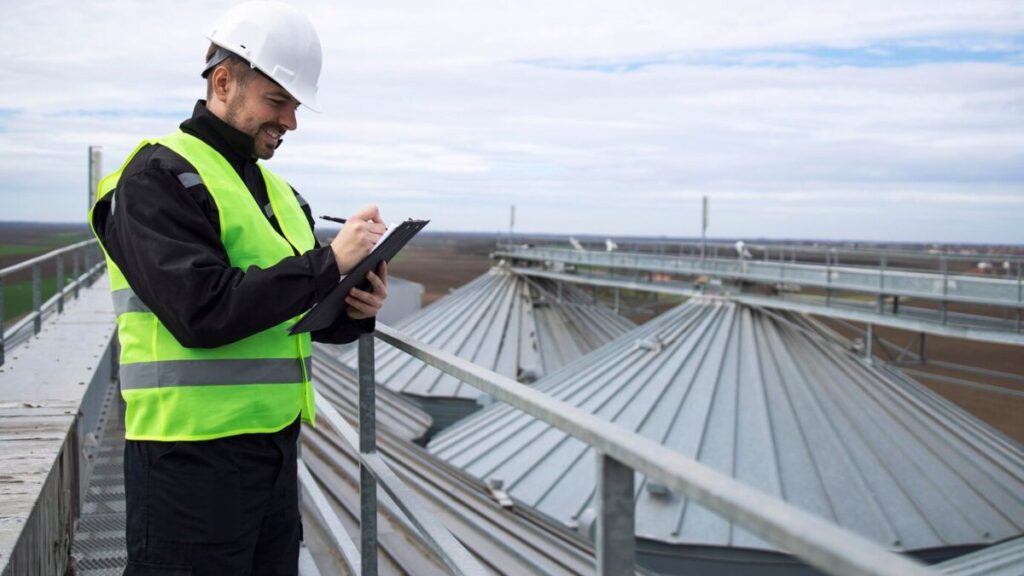Introduction
Modern industries demand speed, efficiency, and adaptability. Whether you’re managing a warehouse, operating a logistics center, or overseeing a construction project, the ability to move materials quickly and safely is non-negotiable. At the heart of many of these operations is a vital piece of machinery: the forklift.
Forklifts have revolutionized how businesses manage materials. These versatile machines reduce manual labor, improve safety, and accelerate workflow. However, with changing project demands, rising equipment costs, and the growing need for flexibility, many businesses are reconsidering how they access and use forklifts. Rather than making long-term investments, companies are increasingly turning to forklift rentals as a cost-effective and scalable solution.
This article explores the critical role forklifts play in modern operations, compares renting versus owning, and highlights how renting can significantly improve business outcomes in both the short and long term.
The Evolving Role of Forklifts in Industry
Forklifts have come a long way from being simple material movers. Today, they are advanced, purpose-built machines designed for specific applications, environments, and industries. Depending on your operational needs, you might choose from:
- Electric forklifts for indoor use
- Diesel-powered units for rugged outdoor environments
- Reach trucks for navigating tight warehouse spaces
- Telehandlers for high-lift construction jobs
- Pallet jacks and walkie stackers for smaller load operations
Each of these machines addresses unique challenges—space limitations, terrain conditions, or load size. With so many types available, it’s not always practical or financially viable for a company to purchase every kind of forklift it might need. That’s where the flexibility of forklift rentals comes in.
Buying Forklifts: A Traditional Yet Limited Approach
For decades, businesses have defaulted to purchasing their equipment. Ownership offered long-term control and potential tax advantages. But it also came with significant drawbacks.
Challenges of Ownership:
- High upfront cost: Purchasing even a single forklift can require a large capital investment.
- Maintenance responsibility: Owners are accountable for ongoing maintenance, repairs, and inspections.
- Depreciation: Forklifts lose value over time, reducing the long-term ROI.
- Limited flexibility: Buying a forklift means you’re stuck with that specific model—even if your needs change.
If your business is in a phase of growth, transition, or diversification, locking capital into fixed assets like forklifts can limit your agility.
Renting Forklifts: A Strategic Alternative
Renting forklifts has shifted from being a backup option to a preferred strategy for many forward-thinking businesses. The advantages extend beyond convenience—they impact financial planning, workforce efficiency, and overall operational agility.
Key Benefits of Forklift Rentals
- Lower Initial Costs
Rather than tying up capital in an expensive purchase, renting allows companies to preserve cash flow. Rental fees are predictable and can be included in operational budgets rather than capital expenditures. - Maintenance Included
Most rental agreements include maintenance, inspections, and even emergency repairs. This ensures optimal machine performance without burdening your internal team or increasing downtime. - Adaptability to Demand
Workloads often fluctuate. Renting gives you the flexibility to scale your fleet up or down based on current needs. Whether it’s a seasonal spike or a short-term project, forklift rentals keep you agile. - Access to Modern Equipment
Rentals often include the latest models, ensuring you benefit from updated safety features, improved fuel efficiency, and better ergonomics. This reduces risks and boosts operator productivity. - No Long-Term Commitment
Renting gives you options. You’re not locked into one type of equipment. You can switch forklift types based on changing project requirements.
When Should You Rent Instead of Buy?
Forklift ownership isn’t wrong—it simply depends on your business model. However, renting is usually the better option under the following conditions:
- Short-term projects: Construction sites, seasonal warehouses, or pop-up facilities.
- New business ventures: Startups looking to preserve capital until cash flow stabilizes.
- Testing new equipment: Try before you buy by renting different forklift types.
- Equipment downtime: Use rentals as temporary replacements for broken or under-repair forklifts.
Forklift rentals offer more than convenience—they provide operational continuity, something every business strives to maintain.
Cost Comparison: Renting vs. Owning
Let’s break down the cost factors to consider.
| Expense Type | Owning | Renting |
| Upfront Cost | High (Capital Expense) | Low (Operating Expense) |
| Maintenance Costs | Ongoing responsibility | Often included in rental |
| Depreciation | Equipment loses value over time | No depreciation concerns |
| Insurance | Required by owner | Typically covered by provider |
| Flexibility | Limited | High—switch or scale equipment easily |
| Upgrades | Requires new purchase | Access newer models anytime |
From a financial standpoint, forklift rentals often make more sense for companies needing short-term use, high flexibility, or a reduced maintenance burden.
Choosing the Right Rental Partner
Not all rental services are created equal. Choosing a dependable rental provider ensures you get equipment that’s safe, well-maintained, and suited to your job. Here’s what to consider:
- Fleet Variety: Look for a provider with a wide range of forklift types and brands.
- Maintenance Support: Choose companies that offer 24/7 technical support and routine service.
- Training & Compliance: Some providers offer operator training, which is especially valuable if your staff isn’t certified.
- Delivery & Pickup Options: Fast delivery and return services can save you time and logistical headaches.
- Transparent Contracts: Understand what’s included—maintenance, breakdown cover, replacement policies, etc.
The right rental partner isn’t just a vendor—they’re an extension of your operational team.
Environmental Impact and Sustainability
Sustainability is more than a buzzword—it’s a business imperative. Many companies are under pressure to reduce emissions, waste, and energy consumption. Forklifts play a role here, too.
Electric forklifts, increasingly available through rental fleets, offer quieter operation and zero emissions. By opting for forklift rentals, companies can test environmentally friendly options without the risk of large capital investment. You can evaluate how electric or hybrid models perform under your unique working conditions before making a long-term switch.
Safety and Compliance Benefits
Modern forklifts come equipped with advanced safety features—rear-view cameras, weight sensors, operator restraint systems, and more. Renting gives you access to these upgrades without needing to buy a new unit.
Additionally, most rental providers perform thorough pre-delivery inspections, ensuring the equipment complies with safety standards. This can reduce liability, protect your workforce, and help you pass inspections more easily.
Common Misconceptions About Forklift Rentals
Despite the many benefits, some businesses are hesitant to rent due to a few misconceptions:
- “Renting is more expensive in the long run.”
This can be true if a forklift is used every day for many years. However, for seasonal or temporary use, renting is almost always more cost-effective. - “Rented equipment is unreliable.”
Reputable providers invest in high-quality equipment and maintain it regularly. In many cases, rental forklifts are newer and in better condition than owned units. - “We can’t customize rented equipment.”
While full modifications may not be possible, many rentals allow configuration options (fork types, lift heights, tires, etc.) to suit your specific needs.
Conclusion
In the fast-paced world of modern industry, agility is everything. Businesses must be able to scale, adapt, and evolve without wasting time or capital. Forklifts are an essential part of material handling, but how you access them can make all the difference.
Choosing forklift rentals gives your business the flexibility to grow, the tools to succeed, and the freedom to operate without being tied down by ownership obligations. Whether you’re navigating seasonal surges, short-term projects, or evolving market demands, renting forklifts provides a smart, cost-effective, and scalable solution.
It’s not just about having the right equipment—it’s about having it at the right time, in the right place, with the right support. Renting puts you in that position.







